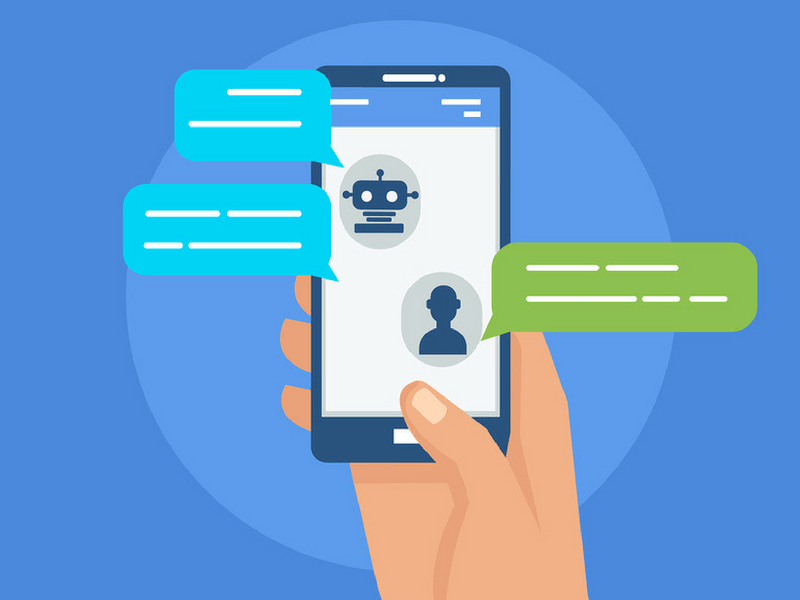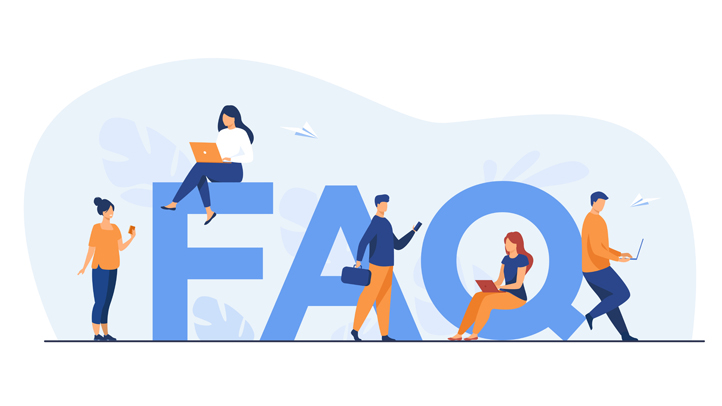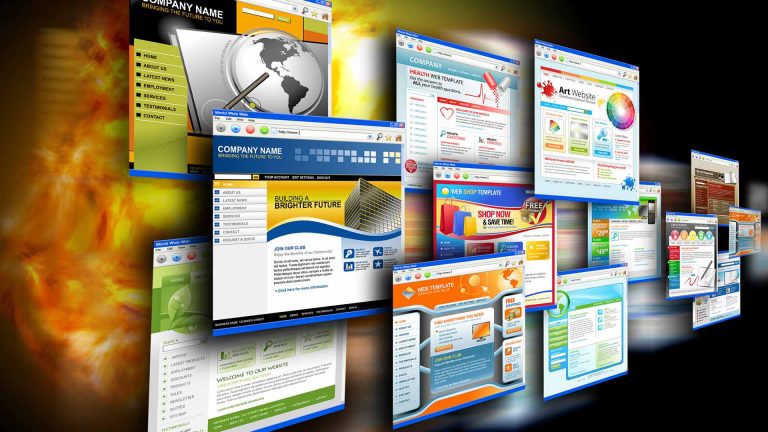How Chatbots Can Help You Stay on Top of Marketing Automation Trends
Marketing automation trends are constantly evolving and changing, as new technologies, platforms, and customer expectations emerge. To stay ahead of the competition, businesses need to keep up with the latest marketing automation trends and best practices.
One of the most important marketing automation trends is chatbots, which are software applications that can simulate human-like conversations with users via text or voice, powered by artificial intelligence (AI) and natural language processing (NLP).
Chatbots are not just a tool for customer service or entertainment. They are also a powerful tool for marketing automation, which is the process of using software and technology to automate and optimize marketing tasks and campaigns.
By using chatbots for marketing automation, you can:
- Boost customer engagement and satisfaction
- Generate more leads and sales
- Personalize content and offers
- Optimize email, content, and SEO marketing
- Enable omnichannel marketing
- Use generative AI and reinforcement learning
- Increase customer retention and loyalty
- Integrate with other marketing automation tools
In this article, we will explain how chatbots can help you stay on top of the latest marketing automation trends and best practices, and provide you with some examples and tips on how to use chatbots for your own business.
Marketing Automation Trends: The Future of Customer Engagement and Retention

One of the most important marketing automation trends is customer engagement, which is the degree of interaction and involvement that a customer has with a brand or a business. Customer engagement is crucial for building trust, loyalty, and advocacy, as well as for increasing sales and revenue.
Chatbots can help businesses improve customer engagement by providing 24/7 customer service, answering FAQs, and resolving issues faster and easier than human agents. Chatbots can also provide personalized and contextual responses, based on the customer’s preferences, behavior, and history. This can make the customer feel valued and understood, and increase their satisfaction and loyalty.
1. Chatbots Generate More Leads and Sales
Another key marketing automation trend is lead generation, which is the process of attracting and capturing potential customers for a business. Lead generation is essential for growing a business, as it can help increase brand awareness, traffic, and conversions.
Chatbots can help businesses generate more leads and sales by capturing leads, qualifying prospects, and guiding customers through the buying journey. Chatbots can also use data, AI, and machine learning to deliver personalized and timely messages and offers, based on the customer’s stage, interest, and intent. This can help increase the customer’s interest and motivation, and drive them to take action.
2. Chatbots Personalize Content and Offers
Personalization is another major marketing automation trend, as it can help businesses deliver relevant and valuable experiences to their customers, which can increase customer satisfaction, loyalty, and retention. Personalization is the process of tailoring content and offers to each customer, based on their personal information, behavior, and context.
Chatbots can help businesses personalize content and offers by using data, AI, and machine learning to analyze and segment customers, and create customer profiles and personas. Chatbots can also use natural language generation and content creation to produce original and engaging content and conversations, based on the customer’s profile and persona. This can help create a more human and authentic connection with the customer, and increase their trust and confidence.
3. The Impact of Marketing Automation Trends on SEO, Content, and Email Marketing
Email, content, and SEO are some of the most common and effective marketing automation strategies, as they can help businesses reach and attract customers, and provide them with valuable and relevant information. However, these strategies can also be time-consuming and challenging, as they require a lot of planning, creation, and optimization.
By using AI and machine learning to automate and improve these tasks and campaigns, chatbots can help businesses optimize email, content, and SEO marketing. For example, chatbots can help businesses create and send personalized and targeted emails, based on the customer’s behavior and actions. In addition, chatbots can help businesses create and distribute engaging and SEO-friendly content, based on the customer’s needs and interests. Furthermore, chatbots can help businesses improve their SEO ranking and visibility, by using natural language processing and keyword analysis to optimize their content and website.
4. Chatbots Enable Omnichannel Marketing
Omnichannel marketing is another important marketing automation trend, as it can help businesses create seamless and consistent customer experiences across multiple digital channels and platforms. Omnichannel marketing is the process of integrating and aligning all the customer touchpoints, such as website, email, social media, chat, and phone, and providing a unified and coherent message and offer.
Chatbots can help businesses enable omnichannel marketing by creating and maintaining a single customer view, which is a comprehensive and holistic representation of each customer, based on their data, behavior, and interactions across all the channels and platforms. Chatbots can also use data, AI, and machine learning to deliver personalized and contextual messages and offers, based on the customer’s channel, device, and location. This can help create a more convenient and satisfying customer experience, and increase customer retention and loyalty.
5. Marketing Automation Trends: Chatbots Use Generative AI and Reinforcement Learning
Generative AI and reinforcement learning are advanced and innovative marketing automation trends. They help businesses create original and engaging content and conversations, and learn from their own experiences and feedback. Generative AI uses AI and machine learning to generate new and unique content, such as text, images, audio, and video. Reinforcement learning uses AI and machine learning to learn from trial and error, and optimize behavior and performance, based on rewards and penalties.
Chatbots use generative AI and reinforcement learning to create original and engaging content and conversations, and learn from their own experiences and feedback. Moreover, chatbots use natural language generation and content creation to produce new and unique content and conversations, based on the customer’s needs and interests. Furthermore, chatbots use natural language understanding and sentiment analysis to understand the customer’s feedback and emotions, and adjust their responses and actions accordingly. This helps create a more human and authentic connection with the customer, and increase their trust and confidence.
6. Chatbots Increase Customer Retention and Loyalty
Customer retention and loyalty are some of the most important marketing automation goals, as they can help businesses increase customer lifetime value, reduce customer acquisition costs, and generate more referrals and word-of-mouth. Customer retention and loyalty are the process of keeping and rewarding customers who are loyal and satisfied with a business, and encouraging them to repeat purchases and recommend the business to others.
Chatbots can help businesses increase customer retention and loyalty by using data, AI, and machine learning to predict customer behavior, preferences, and lifetime value, and offer value-driven retargeting and retention strategies. In addition, chatbots can also use natural language processing and sentiment analysis to monitor customer satisfaction and loyalty, and provide timely and appropriate feedback and rewards. Chatbots can also use natural language generation and content creation to create original and engaging content and conversations, that can keep customers interested and entertained.
7. Chatbots Integrate with Other Marketing Automation Tools
Integration is another essential marketing automation trend, as it can help businesses streamline workflows, increase productivity, and enhance performance. Integration is the process of connecting and aligning different marketing automation tools and systems, such as CRM, CMS, email, social media, chat, and analytics, and enabling them to work together and share data and insights.
Chatbots can help businesses integrate with other marketing automation tools by using APIs and webhooks to connect and communicate with different platforms and systems, and exchange data and information. Furthermore, chatbots can also use data, AI, and machine learning to analyze and interpret data and insights from different sources, and provide actionable and relevant recommendations and reports. Additionally, chatbots can also use natural language processing and natural language generation to create and send messages and content across different channels and platforms, and provide a consistent and coherent message and offer.
FAQs in Relation to Why Chatbots are a Great Tool for Marketing Automation and AI

Here are some common questions that readers may have about chatbots and their role in marketing automation and AI, and some possible answers:
What are the benefits of chatbots over human agents?
Chatbots have several benefits over human agents, such as:
- Chatbots can provide 24/7 service, without any breaks or delays.
- Chatbots can handle multiple customers at the same time, without any errors or confusion.
- Chatbots can provide consistent and accurate responses, without any bias or emotion.
- Chatbots can save time, money, and resources, by reducing the need for human agents and infrastructure.
- How can chatbots improve customer trust and loyalty?
Chatbots can improve customer trust and loyalty by providing personalized and relevant experiences, based on the customer’s data, behavior, and context. Moreover, chatbots can also provide timely and appropriate feedback and rewards, based on the customer’s satisfaction and loyalty. Chatbots can also create original and engaging content and conversations, that can make the customer feel valued and understood.
How can chatbots measure and improve their performance?
Chatbots can measure and improve their performance by using data, AI, and machine learning to track and analyze various metrics and indicators, such as:
- Customer satisfaction and loyalty, such as ratings, reviews, feedback, and referrals.
- Customer engagement and retention, such as open rates, click rates, response rates, and churn rates.
- Customer conversion and revenue, such as leads, sales, upsells, and cross-sells.
Chatbots can also use data, AI, and machine learning to optimize and improve their responses and actions, based on the customer’s feedback and results.
How can chatbots adapt to changing customer needs and expectations?
Chatbots can adapt to changing customer needs and expectations by using data, AI, and machine learning to learn from their own experiences and feedback, and update their knowledge and skills. Chatbots can also use natural language processing and natural language generation to understand and respond to new and complex customer queries, and create original and engaging content and conversations.
How can chatbots comply with data privacy and security regulations?
To comply with data privacy and security regulations, chatbots use encryption, authentication, and authorization to protect and secure customer data and information. Moreover, chatbots use data, AI, and machine learning to anonymize and delete customer data and information, based on the customer’s consent and preferences. In addition, chatbots use natural language processing and natural language generation to inform and educate customers about their data privacy and security rights and options, and obtain their consent and preferences.
Conclusion
As you can see, chatbots are a great tool for marketing automation and AI, as they can help you stay on top of the latest marketing automation trends and best practices. Chatbots can help you boost your marketing performance and results, by providing personalized and relevant experiences to your customers, and saving you time, money, and resources.
If you want to try chatbots for your own business, or learn more about how they can help you with marketing automation and AI, you can contact us today at ONextDigital. We are a leading provider of white label software service and CRM & auto marketing automation solution, and we can help you create and manage your own chatbots, tailored to your specific needs and goals.
Don’t miss this opportunity to take your marketing to the next level with chatbots. Contact us today.




